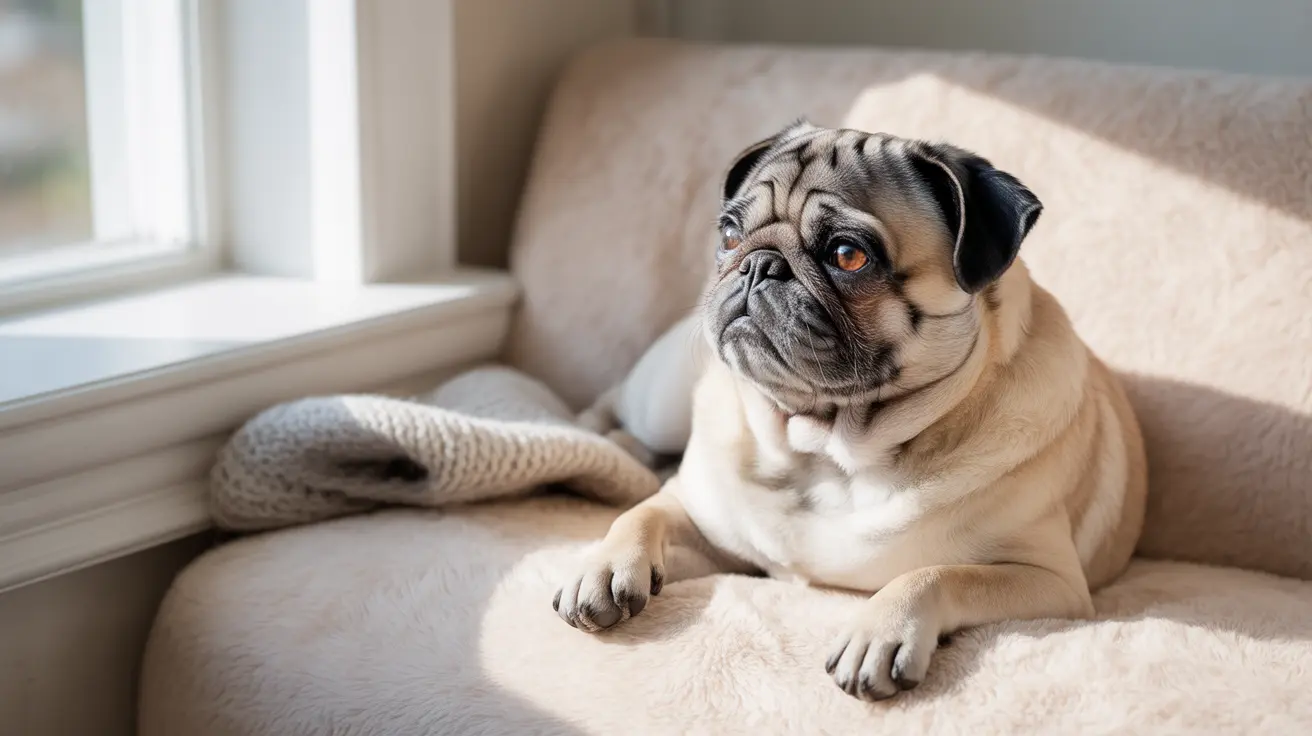If you've noticed your dog's nose feeling dry and wondered "why is my dog's nose dry?", you're not alone. While a wet nose is often associated with canine health, a dry nose isn't always cause for concern. Understanding the various reasons behind your dog's dry nose can help you determine when it's normal and when it might need veterinary attention.
In this comprehensive guide, we'll explore the common causes of dry noses in dogs, when to be concerned, and how to address this condition effectively. We'll also debunk some common myths about dog nose moisture and provide practical solutions for maintaining your pet's nasal health.
Normal Causes of Dog Dry Nose
Sleep and Rest
One of the most common and harmless reasons for a dry nose is sleep. Dogs don't lick their noses while sleeping, which naturally leads to temporary dryness. This typically resolves shortly after they wake up and resume their normal licking behavior.
Environmental Factors
Weather conditions and indoor environments can significantly impact your dog's nose moisture. Exposure to direct sunlight, wind, or sleeping near heating vents can cause temporary nose dryness. These situations usually don't require intervention unless accompanied by other symptoms.
When to Be Concerned About a Dry Nose
Medical Conditions
Sometimes, a dry nose can indicate underlying health issues, particularly when accompanied by other symptoms. Watch for:
- Lethargy or decreased activity
- Loss of appetite
- Vomiting or diarrhea
- Excessive thirst
- Changes in nose texture or color
Dehydration Signs
Dehydration is a serious concern that can manifest as a dry nose. Additional signs include:
- Sunken eyes
- Dry, sticky gums
- Reduced skin elasticity
- Decreased urination
- Thick saliva
Breed-Specific Considerations
Some dog breeds are more prone to dry noses due to their facial structure. Brachycephalic breeds like Pugs, Bulldogs, and Boston Terriers often experience chronic nasal dryness because their shortened snouts make it difficult to lick their noses effectively.
Prevention and Treatment
Maintaining Proper Hydration
Ensure your dog always has access to fresh, clean water. This is especially important during hot weather or after physical activity. Consider placing multiple water bowls throughout your home to encourage regular drinking.
Environmental Management
Take steps to protect your dog from extreme weather conditions and maintain appropriate indoor humidity levels. During winter months, consider using a humidifier to prevent excessive dryness.
Nose Care Products
If your dog experiences frequent nose dryness, consult your veterinarian about using pet-safe nose balms or moisturizers. Never use human products without veterinary approval, as these can be harmful to dogs.
Frequently Asked Questions
Why is my dog's nose dry, and what are the common causes?
A dog's nose can become dry due to various factors, including sleep, environmental conditions, dehydration, or underlying health issues. Most cases of dry nose are temporary and resolve on their own, especially if caused by sleep or weather conditions.
Can a dry dog nose be a sign of illness, and when should I seek veterinary care?
While a dry nose alone isn't usually cause for concern, you should seek veterinary care if it's accompanied by lethargy, loss of appetite, vomiting, or changes in nose texture or color. These could indicate more serious health issues requiring professional attention.
How can I prevent and treat a dry nose in my dog at home?
Ensure proper hydration, protect your dog from extreme weather conditions, and maintain appropriate indoor humidity levels. For minor cases, veterinarian-approved nose balms can help moisturize the nose.
Are some dog breeds more prone to dry noses due to their facial structure?
Yes, brachycephalic breeds like Pugs and Bulldogs are more susceptible to dry noses due to their shortened snouts, which make it difficult for them to lick their noses effectively.
What are the signs of dehydration in dogs, and how can I keep my dog hydrated to prevent a dry nose?
Signs of dehydration include sunken eyes, dry gums, reduced skin elasticity, and decreased urination. Prevent dehydration by providing constant access to fresh water, especially during hot weather or after exercise.
Conclusion
While a dry nose can be concerning for dog owners, it's often a normal occurrence that resolves on its own. Understanding the various causes and knowing when to seek veterinary care will help you better care for your dog's health. Remember to monitor your pet's overall behavior and symptoms, as these are more reliable indicators of health than nose moisture alone.






